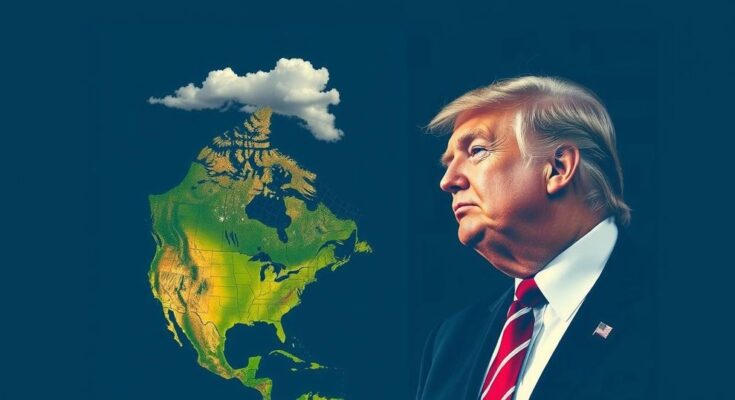The election of Donald Trump as president signals a regression in climate change efforts, particularly during COP29, where securing climate financing for developing countries is crucial. Concerns arise due to Trump’s pro-fossil fuel stance and previous withdrawal from the Paris Agreement, leading to increased pessimism among scientists regarding their impact on climate policy.
The recent election of Donald Trump as the United States president poses significant challenges for climate change advocacy and action, particularly in light of the ongoing COP29 U.N. Climate Summit in Baku, Azerbaijan. In stark contrast to the evolving global consensus on the urgency of addressing climate change, Trump’s administration is expected to prioritize fossil fuel production, as evidenced by his vocal support for increased drilling and fracking. This shift in leadership is likely to dampen the resolve of scientists and activists alike, who are grappling with feelings of despair amid rampant environmental crises. At the heart of COP29 is the critical need for climate financing aimed at supporting developing nations; however, the potential lack of cooperation from the U.S., under Trump’s directive, could thwart these efforts. The broader scientific community appears to be experiencing a growing sense of pessimism regarding its impact on policymaking, which raises urgent questions about the future of global efforts against climate change.
The article discusses the recent developments surrounding climate change, particularly in the context of the COP29 U.N. Climate Summit held in Baku, Azerbaijan. It references a seminal moment three years prior when scientists proposed halting climate change research due to frustrations with government inaction following a report by the Intergovernmental Panel on Climate Change (IPCC). The piece highlights the apprehension felt by climate experts, due to extreme weather events and the election of Donald Trump, who is anticipated to regress the progress made in climate policies by advocating for increased fossil fuel usage and disengaging from international agreements like the Paris Accord. This backdrop raises critical concerns about future global climate initiatives and scientific morale.
The election of Donald Trump portends a serious setback for global climate change initiatives, especially during this crucial juncture at COP29. As scientists face increasing anxiety regarding their contributions in the face of looming environmental catastrophes, the potential for lack of cooperation from the U.S. undermines efforts to secure necessary funding for vulnerable nations. The prevailing mood within the scientific community suggests a concerning trend of pessimism that could hinder future endeavors aimed at combating climate change. Unless concerted action occurs globally, the worsening climate situation may continue unabated under leaders who prioritize national interests over scientific realities.
Original Source: www.asahi.com




